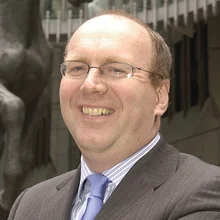
Analysis: Review of 2018

The spectre of Brexit loomed large over the insurance sector this year, and although the picture is still no clearer in terms of how the UK market will continue to trade with Europe after 29 March 2019, significant merger & acquisition activity was among the notable trends of the last 12 months. David Worsfold reflects on what 2018 also meant for brokers, claims handlers and the insurtech community
It is unlikely that 2018 will be a year that many in the insurance industry will readily recall in years to come. It has been the archetypal curate’s Egg: good in parts but mostly unmemorable. There will also be some bitter legacies that will hang over into 2019 and beyond, not least the UK leaving the European Union and the investigations into dual pricing.
It has certainly been hard to escape from Brexit. The huge uncertainty surrounding the final outcome of the tortuous negotiations mean that most firms are no clearer on how it might affect them – and their clients – as the year closes than they were on New Year’s Day. Hopes have been raised and hopes have been dashed that there might be a deal, or at least an extended transition period, that maintains equivalence. The Chequers proposals reminded the financial services sector that it would have to fight hard and shout loud if it is to sustain any serious traction in the negotiations.
Firms with any significant business across the borders of the EU have prudently decided to plan for a hard Brexit sooner rather than later and re-domiciled large parts of their business within the remaining 27 countries. According to the International Underwriting Association, Ireland and Luxembourg have been the top choices. And Lloyd’s has set up shop in Brussels.
The industry had the less than welcome distraction of the General Data Protection Regulations in the middle of the year, although many will probably look back and appreciate the benefits. The regulation has cleaned up some neglected and poorly constructed databases and less reputable competitors are now finding it harder to bombard potential customers with their dodgy offers.
The end of the year unusually brought some more positive news from the political front.
The Civil Liability Bill made it through to the statute book, heralding the long-sought after reforms of personal industry claims. And at the end of October, the Chancellor of the Exchequer, the dour Philip Hammond, produced sighs of relief across the industry as he left insurance premium tax unchanged. The industry – led by the Association of British Insurers and the British Insurance Brokers’ Association – fought a skillful campaign against further increases and can afford a quiet moment of satisfaction at the outcome. It is likely they will have to return to the fray in 2019.
Some sectors have had more interesting years than others.
Claims
15 January
Carillion collapses
24 February to 4 March
Beast from the East hits the UK
June
Japan floods
25 June
Glasgow School of Art fire
July
Subsidence claims start rising
24 September
Zurich pays first two victims of March 2017 terror attacks
10 October
Hurricane Michael makes landfall in Florida
24 October
Civil Liability Bill passes House of Commons
Claims
2018 certainly had its share of major claims, as well as some nasty hangovers from 2017.
Credit insurers are still reeling from the collapse of Carillion at the end of January, leaving them with an estimated bill of £31m. As the year wore on and the woes of the high street showed no signs of abating, the tougher line being taken by credit insurers was frequently mentioned in stories about the House of Fraser, Debenhams and Patisserie Valerie, among others.
The ‘Beast from the East’, winter’s late savaging of almost the whole of the UK, pushed up domestic and commercial claims by 290% in the first quarter and was yet another reminder that climate change is making our weather much less predictable.
That was followed by one of the longest, hottest and – crucially – driest summers on record. By August property insurers were ringing alarm bells about subsidence. 2018 is set to be the first subsidence surge year since 2003 with claims already up 400% on recent years. The warm, dry autumn will have done little to ease the strain of the surge.
One of the saddest claims was the second – and more devastating – fire at the Glasgow School of Art in June, estimated to cost insurers upwards of £100m, depending on the outcome of investigations and decisions about how much to restore. It came just as all the parties concerned were congratulating themselves on a job well done after the first fire four years earlier.
Internationally, the big claims were concentrated in the second half of the year.
Severe floods in Japan in June and July caused £3.2bn of insured losses, although not much of that is likely to end up in the London Market. In September, Super Typhoon Mangkhut swept across the Philippines, Hong Kong and China just as the Atlantic hurricane seasons belatedly stared to bite. Hurricane Michael alone is estimated to have caused over $10bn (£38.1m) of economic losses of which the Florida Office of Insurance Regulation estimates just over $2bn are insured. It is another reminder of the widening gap between insured and economic losses in major natural catastrophes.

Stewart Steel
CEO, Sedgwick UK
What was the high point of 2018 for the insurance industry?
The increasingly rapid development of insurtech and fintech here in the UK and the growing belief that the UK insurance industry is gaining a global leading edge in this arena is extremely exciting.
What was the biggest disappointment during the year?
A perennial negative observation of our industry is the continued challenge we seem to have attracting the brightest, best and most diverse talent compared with other professions”.
Who had a good year?
Given the current level of consolidation across the sector, those who advise on such transactions have obviously had a bumper year. Corporate financiers and brokers, mergers and acquisition practitioners and lawyers have all reaped the benefits of an active market in a state of heightened evolution.
What will you be doing on 29 March 2019 - Brexit Day?
Personally I am booked to be enjoying a skiing holiday in the French Alps. However we shall have to wait and see what Brexit and potential border and passport control changes have to say about that.

Helen Faulkner
Head of insurance, DAC Beachcroft
What was the high point of 2018 for the insurance industry?
Most insurers will be pleased to see the end of 2018, especially property insurers, with UK property insurers being hit by the Beast from the East and the subsidence event due to the long, hot, dry summer, and global property insurers by multiple hurricanes and earthquakes.
What was the biggest disappointment during the year?
Perhaps the lack of signs of a lighter touch for our insurance clients in terms of regulatory oversight.
Who will be glad to see the back of 2018?
Brexit campaigner Aaron Banks – who now says he would be a ‘Brexit Remainer’.
London market
20 March
Electronic placement mandate issued
21 March
Lloyd’s announces loss for 2017 of £2bn
23 May
Lloyd’s receives regulatory approval for Brussels operation
25 June
International Underwriting Authority publishes Brexit contract continuity clause
29 June
Lloyd’s CEO Dame Inga Beale announces she will stand down in 2019
15 October
IUA announces 16% leap in company market premium income
16 October
John Neal starts as Lloyd’s new CEO
Lloyd’s and the London Market
“This year, next year, sometime, never” has been a standing joke about electronic placement in the London Market for nearly two decades. No longer. 2018 was the year when it finally became a reality, ruthlessly pushed through by the market authorities. For all of her fine work on diversity, it is the delivery of electronic placement via the Placing Platform Limited across almost all classes of businesses that will be seen as former Lloyd’s CEO Dame Inga Beale’s finest legacy of her five years at the helm of Lloyd’s. One third placed electronically by the end of the year is just a start and one of new Lloyd’s CEO John Neal’s biggest challenges will be to maintain that momentum and ensure it brings in its wake some significant cost reductions, increasingly a millstone around the market’s neck.
Lloyd’s reported £2bn losses from 2017, mainly as a consequence of the trio of devastating hurricanes – Harvey, Irma and Maria – that hit the US and the Caribbean. Just as it was quietly congratulating itself on a positive first half of 2018, the world turned nasty again and the nat cat losses started clocking up..
At the end of May, Lloyd’s heard that its new office in Brussels had received regulatory approval and it set about recruiting the 200 plus staff it will need to run it. As the Brexit alarm bells started ringing louder and more incessantly in the autumn, the market started issuing reassuring promises that no clients would be disadvantaged by Brexit, especially promising to do whatever was necessary to pay claims after 29 March 2019.
The London company market had a quietly successful year with the IUA reporting that the total premium either written or controlled by the London company market rose to £26.31bn, a 16% increase.

Simon Cooter
Commercial lines and high net worth director, Covéa Insurance
What was the biggest disappointment during the year?
The growing spectre of a ‘No Deal Brexit’ has caused massive uncertainty to the nation and to our industry. At the time of writing, we are no closer to knowing what the outcome will look like.
Who had a good year?
It’s been a good year for insurtech. There is still plenty of hype but also real evidence that changing customer needs are driving innovative solutions from new start-ups and incumbents too. Close to my heart, Insurance United Against Dementia has really caught the imagination including the first ever Insurance Day of Giving in November.
What will you be doing on 29 March 2019 - Brexit Day?
Probably stuck on the M20 along with 10000 lorries that can’t get to France.

Dave Matcham
Chief executive, International Underwriting Association
What was the high point of 2018 for the insurance industry?
The publication of a temporary permissions regime, enabling firms to continue operating in the London Market once the UK leaves the EU. £7.8bn worth of premium is written by firms currently passporting into London from Europe. So, without this legislation we would be facing major market disruption.
What was the biggest disappointment during the year?
It has been disappointing that the arrangements outlined in the temporary permissions regime have not been reciprocated by the EU for London firms passporting into continental European jurisdictions. Companies have been working hard to establish new arrangements for servicing clients, but there has, unfortunately, been no political agreement as yet, even on the issue of maintaining contract continuity for existing policies.
Who had a good year?
The London company market has had a good year generally with our statistics showing recorded premium income jumping 16% to an overall total of more than £26bn. We have received multiple reports of firms embarking on new lines of business and growing premium volumes in specific classes as part of dedicated business plans. There are also instances of books of business being moved to the UK from other companies within a wider multinational group and of new insurance products being developed and offered to clients.
Who will be glad to see the back of 2018?
The London Market’s e-placing platform, Public Placing Limited, has actually had a very good year – rapidly driving up levels of adoption. But it will be good to see 2018 as the conclusion of several years substantial centralized investment by International Underwriting Association members. From 2019 onwards the project will be funded under a user pays model as it becomes an everyday part of our sector’s infrastructure.
Brokers
20 February
Insurance Distribution Directive delay announced
15 April
Ghost broker jailed for £321,000 insurance scam
30 April
Financial Conduct Authority issues first clone broker warning of 2018
4 September
French broker Verlingue announces it has acquired ICB Group
1 October
IDD implemented
15 October
Google says: “We believe in brokers.”
Brokers
For over 30 years, the gloom merchants have been predicting the demise of brokers but they refuse to die.
It is a sector than has learned to live and breathe the mantra “adapt and survive”. That the largest annual event in the UK insurance market is now the British Insurance Brokers’ Association conference demonstrates how important the broking sector remains. BIBA’s 2018 conference theme “Innovate, Evolve, Thrive” optimistically looked to the future.
According to the Financial Conduct Authority, as many as 40% of the six million SMEs in the UK could be underinsured and this market has become a major focus for brokers looking to grow. It wasn’t just UK firms that spotted this opportunity. In an welcome antidote to some of the Brexit gloom, in September French commercial insurance broker Verlingue announced it had acquired the UK broker ICB Group.
Regulation has dominated brokers’ lives for almost as long as anyone can remember and 2018 was no different. The most important change came with the delayed implementation of the Insurance Distribution Directive at the beginning of October. This brought in new rules about transparency and clarity, especially when communicating with new customers. It largely represents what many have already adopted as best practice.
Regulators have never been seen by brokers at their best friends but many have applauded the FCA and others as they have been more effective in their pursuit of ghost and clone brokers. The year saw several successful prosecutions as well as speedy action by the FCA.
The Citizens Advice super-complaint to the Competition and Markets Authority about dual pricing has already prompted the FCA into action in respect to the practice in the insurance sector. The investigatory spotlight is likely to fall most sharply on insurers but brokers will be watching with interest. Many already believe the outcome could be helpful to brokers as the shop around message is reinforced.
As the year drew to a close, eyes were also being cast towards the FCA to see when the report of its investigation into the wholesale broking market – launched last November – is likely to appear.

Graham Gibson
Chief claims officer, Allianz Insurance UK
What was the high point of 2018 for the insurance industry?
The Civil Liability Bill passing through the House of Commons in October. We were particularly pleased to see that the last minute amendments to the Small Claims Track were voted down.
What was the biggest disappointment during the year?
Theft of all types has continued to rise in the UK throughout 2018. There has been a particular increase in vehicle thefts, while robberies from business properties have increased by 27% in the last year alone.
Who will be glad to see the back of 2018?
I hope we’ve seen the back of the criminals who were prosecuted for committing insurance fraud. Fraud detection remained our priority in 2018 and this focus will continue.
Who had a good year?
The progress made this year by the Fire Protection Association on Building Regulations and Fire Safety has been incredibly important and their mandate was one Allianz fully supported. People should be able to take for granted that the buildings they live and work in meet fire regulations that offer them genuine protection.

Graham Smart
Managing director – UK & Europe, McLarens
What was the high point of 2018 for the insurance industry?
The industry has really embraced diversity and inclusivity and I was delighted to sign the CEO’s Inclusive Behaviours Pledge when it was launched. There have been some great initiatives undertaken to advance this agenda and, in my particular profession, it was really pleasing to see the Women in CILA group recognised at the British Insurance Awards.
Who had a good year?
Merger and acquisition lawyers acting for the insurance sector. The appetite for acquisition has not abated and this year we have seen significant activity in all areas of the market.
Who will be glad to see the back of 2018?
Contractors’ public liability insurers – this year there seems to have been a higher than normal incidence of major losses involving contractors engaged in hot works.
What will you be doing on 29 March 2019 - Brexit Day?
In the city, hopefully celebrating the fact that London remains the world’s premier insurance centre, with the UK having secured financial services passporting rights.
Technology
January
Marsh launches trademark action against insurtech start-up Marshmallow
15 February
Lloyd’s launches Innovation Lab
16 February
Insurtech Board established by FinTech Delivery Panel and Tech City UK
25 May
General Data Protection Regulation deadline
19 July
Autonomous and Electric Vehicle Bill passed
15 August
Amazon rumoured to have held talks with European insurers ahead of market entry
Mid-August
AM Best warns on “silent cyber” risks
September
Geneva Association warns on cyber risk accumulation
Technology and cyber
The central technology event of the year for the industry was the GDPR implementation in May. This absorbed a huge amount of management time and IT resources that many would have preferred to have deployed elsewhere.
The insurance sector was caught up in the growing awareness across the business world of the need to face up to the challenge of cyber security. The Wanna Cry and Not Petya attacks in 2017 served as a wake-up call, reinforced by the many stories of serious data breaches hitting major companies. By the time the UK government warned in the summer of the imminence of Russian government inspired cyber attacks on UK infrastructure and businesses, cyber security was at or near the top of corporate agendas.
Insurers and insurance brokers not only had to look at their own businesses but also had to devise solutions to help protect clients. While many products were being launched, as the year went on some warning flags were being raised over the industry’s vulnerability to major claims.
In August, rating agency AM Best warned of the impact cyber events can have on covers already in place, the so-called silent cyber risk: “The implications of cyber risk for insurers extend beyond the affirmative cyber insurance market. Cyber events can also cause silent cyber losses where policies written to protect against other types of losses such as property, directors’ and officers’ and errors and omissions find coverage from an event caused by a cyber peril,” said the agency.
This was followed in September by an even tougher intervention from the Geneva Association. In an in-depth report it highlighted the full extent of the accumulation risk, warning that insurers and reinsurers could be seriously underestimating cyber exposures resulting in unplanned shocks from a major event. It said the industry lacked data of sufficient quality and criticised the severe shortcomings in its modelling techniques.
Insurtech continued to make progress with the established players looking at the innovators and asking how they could join the party. Lloyd’s took a major step in this direction when it launched its own Innovation Lab at the end of February. The next day, the government backed Tech City UK (now Tech Nation) established a specialist Insurtech panel.
Technology is also changing the nature of risk and the passing of the Autonomous and Electric Vehicles Bill at the end of July heralded the roll-out of driverless cars in the UK.

Paula Jarzabkowski
Associate dean of research and enterprise, professor of strategic management, Cass Business School
What was the high point of 2018 for the insurance industry?
Demonstrating that the parametric-based disaster liquidity products developed for lower-income countries really stood the tests of the devastating natural catastrophes in 2017. These products, trialed in places like Mexico and the Caribbean more than a decade ago, have shown that they are responsive to disaster and that they do provide an immediate payout to help address the immediate post-disaster crisis.
Who had a good year?
The Caribbean Catastrophe Risk Insurance Facility has done well in terms of the products it provides performed well in terms of payouts in 2017, and that is letting it go from strength to strength in building confidence of its members to renew and extend its cover in 2018.
Who will be glad to see the back of 2018?
The US Federal Emergency Management Agency must be looking to a more positive future of collaborating with reinsurance markets in response to growing and under-insured nat cat in the US.

Steve White
CEO, British Insurance Brokers’ Association
What was the high point of 2018 for the insurance industry?
First, the fact that the implementation of the Insurance Distribution Directive was delayed until October was excellent news for brokers giving them time to prepare and the regulator time to give clarity. The Civil Liability Bill and the Counter Terrorism and Border Security Bill are now progressing; both will bring very positive outcomes for members and customers.
What was the biggest disappointment during the year?
Having seen the government’s promises to freeze fuel duty and increase NHS spending we certainly expected Chancellor of the Exchequer Philip Hammond to increase insurance premium tax in the autumn Budget. Thankfully, due to successful lobbying from the industry we avoided that one but let’s not underestimate how much work went into it and how important it is to keep it on the agenda.
Who will be glad to see the back of 2018?
Rather than a person or firm the whole world of insurance will be glad to see the back of uncertainty over Brexit - I sincerely hope by year end we can see a way for us all to put some positive, forward looking plans in place and get on with what we do best.
What will you be doing on 29 March 2019 - Brexit Day?
I’ll be preparing to fly to Rome to represent members at a World Federation of Insurance Intermediaries Congress, so despite the focus on Brexit that day, we’ll continue to represent brokers at not only a European level, but worldwide.
Merger mania
January
Zurich sells Endsleigh to A-Plan
Qatar Re buys Markerstudy Group
February
Global Risk Partners buy Camberford Law
March
Axa acquires XL Group
April
Sedgwick acquisition of Cunningham Lindsey finalised
Jelf buys Clark Thompson
PIB Group buys Wilby
September
Ardonagh buys Swinton
Marsh announces JLT deal
China Re buys Chaucer in £726m deal
October
Ed Broking acquired by BGC Partners
November
Ardonagh sells commercial lines MGA business to Arch Insurance Europe
Merger Mania
Perhaps if there is one thing 2018 will be remembered for is the accelerating pace of mergers and acquisitions across the entire market. Tens of thousands of people working in the industry woke in the morning and found themselves working for a different firm than when they left the office the previous evening.
There were some major headline grabbing mergers such as Marsh’s £4.3bn takeover of JLT in September (due to be completed in the first quarter of 2019). This put Marsh way out in front as the world’s largest insurance broker. The market has since been rife with speculation about how Aon or Willis Towers Watson might respond.
September also saw one of the more significant transactions – or many – in the UK broking market when the Ardonagh Group snapped up Swinton for £165m. This had been put on the market earlier in the year by owners Covea and reports suggested there were several serious suitors.
The claims sector also saw major deals go through when Sedgwick’s acquisition of loss adjusters Cunningham Lindsey was completed in April with CL’s 6000 staff expanding Sedgwick’s team of claims professionals around to 21,000. At the turn of last year Sedgwick had acquired high value claims specialists Vericlaim. By the autumn of 2018 all of theses firms were operating under the Sedgwick name, demonstrating once again how mergers can rapidly change the landscape of the industry.
Insurers were not left on the sidelines. Axa’s $15.3bn acquisition of the XL Group also went through in September, allowing the new entity, Axa XL, to claim top spot as the world’s largest specialist commercial lines property and casualty insurer.
Other eye-catching deals saw heavy foreign investment in UK insurers with China Re paying £726m for Chaucer and Qatar Re acquiring Markerstudy for an undisclosed sum.
The big question as we enter 2019 is – is there a a big UK insurers merger in the offing with RSA at the centre of speculation.
Only users who have a paid subscription or are part of a corporate subscription are able to print or copy content.
To access these options, along with all other subscription benefits, please contact info@postonline.co.uk or view our subscription options here: http://subscriptions.postonline.co.uk/subscribe
You are currently unable to print this content. Please contact info@postonline.co.uk to find out more.
You are currently unable to copy this content. Please contact info@postonline.co.uk to find out more.
Copyright Infopro Digital Limited. All rights reserved.
As outlined in our terms and conditions, https://www.infopro-digital.com/terms-and-conditions/subscriptions/ (point 2.4), printing is limited to a single copy.
If you would like to purchase additional rights please email info@postonline.co.uk
Copyright Infopro Digital Limited. All rights reserved.
You may share this content using our article tools. As outlined in our terms and conditions, https://www.infopro-digital.com/terms-and-conditions/subscriptions/ (clause 2.4), an Authorised User may only make one copy of the materials for their own personal use. You must also comply with the restrictions in clause 2.5.
If you would like to purchase additional rights please email info@postonline.co.uk








